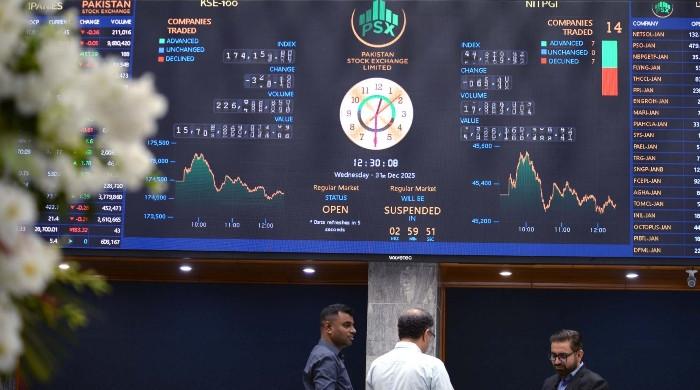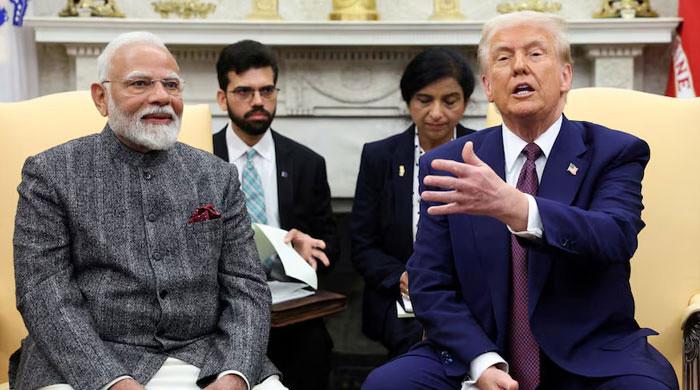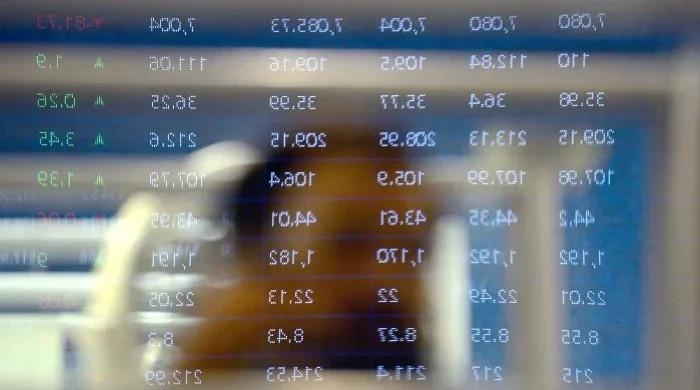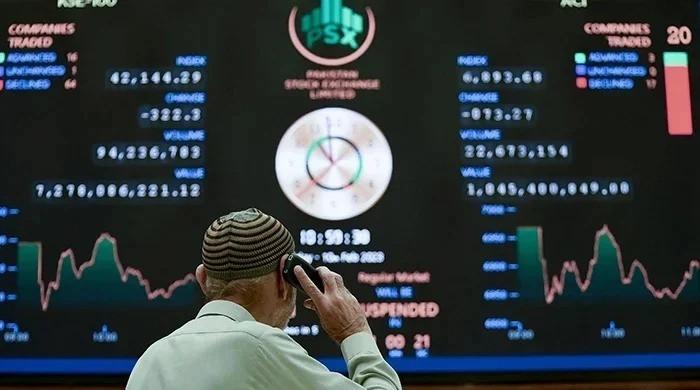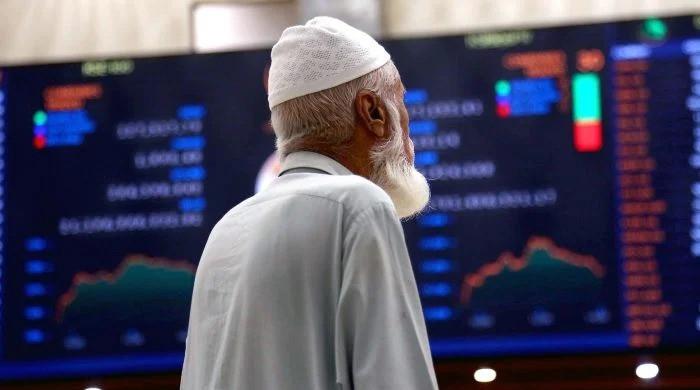Stocks continue to take a battering; 100-index down 1,719 points; trading halted
This is the sixth time in the last nine days when the halt has been triggered
March 19, 2020
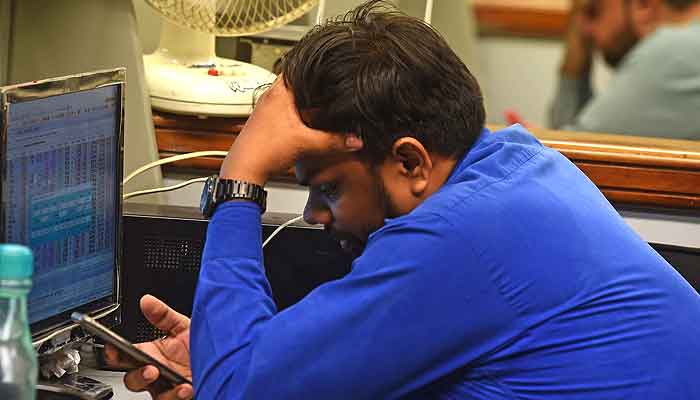
Trading at the Pakistan Stock Exchange (PSX) was halted again on Thursday when the benchmark KSE-100 index plunged 1,719 points after the start of the morning session.
This is the sixth time in the last nine days when trading had to be suspended.
The index was at 28,696 points when the halt was triggered.
On Wednesday, stocks slumped more than 6.5 percent - the worst ever decline in eighteen years - with panic selling from local as well as foreign investors intensified on coronavirus fears, dealers said.
Read more: Asian markets bearish after stimulus package assurances fails to build rally
“Panic selling was observed at the local bourse as index saw its worst ever decline in eighteen years,” brokerage Topline Securities said in post market note.
“(An interest rate cut) was completely ignored by the investors as fright over suspension of economic activity amid increasing number of coronavirus cases in the country weighed down on their sentiment.”
KSE-100 shares index lost 6.75% or 2,200.88 points to close at 30,416.05 points level. KSE-30 shares index followed suit with a low of 7.49% or 1,071.95 points to end at 13.249.13 points.
Of 363 active scrips, only 20 closed up, 336 retreated, and 7 remained unchanged.
The ready market volumes stood at 186.654 million shares, as compared with a turnover of 240.379 million shares in the previous session. Limited participation was observed in the market as trading volume and value declined by 23% and 53% respectively on a day-to-day basis.
Related: SBP introduces measures to facilitate coronavirus-hit economy
In the last three sessions, the KSE-100 index has declined 5,645 points -- the highest three-day decline in history.
It is the highest three-day decline in percentage terms since June 1, 1998, when the index had plunged 21.7 percent over a similar period.
Samiullah Tariq, director research at Arif Habib, said several rating agencies describing the world as entering a recession after the coronavirus outbreak has deterred fresh investment in global markets, which can also have an impact on the local market.
“The [State Bank's] interest rate cut came below the estimates of the investors which resulted in heavy selling in shares [of companies] having leverage,” Tariq said. Naushad Chamdia, CEO, Standard Capital Securities suggested that the circuit breakers limit could be lowered to stop the nerve-wracking decline.
“Secondly, the government needed to act now by giving much-needed stimulus since situation arising out of coronavirus is far reaching which has hampered demand side badly. This means revenue side of businesses will be brutally hit,” Chamdia said.
“The government must act with stimulus package such as curtailing interest rates even further to the extent to stimulate demand side and also curtailing cost of doing business.”




